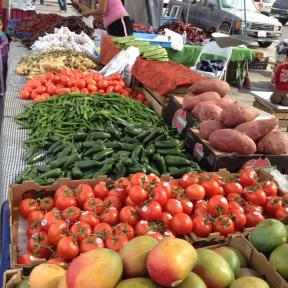by Tou Chang
Environmental Health Specialist II
Tulare County Health & Human Services Agency,
Environmental Health
On May 23, 2017, in Walnut Grove, California, nine people were hospitalized and one person died from consuming nacho cheese sold at a Valley Oak Food & Fuel gas station. The food item was found to be contaminated with botulism toxin (Beach, C., 2017). Who would have thought that nacho cheese could cause so much harm? With the right environment, bacteria in food can multiply rapidly and cause illness. It is the role of the Environmental Health Division to ensure that facilities that are permitted to prepare, store, and process foods for sale comply with the California Retail Food Code to prevent the risk of food borne illnesses.
Our Environmental Health inspectors take preventive measures against food borne illnesses by inspecting food facilities routinely throughout the year. The inspection is usually unannounced. The inspector provides education on food safety and identifies and abates risks that could contribute to food borne illness.
 The inspector conducts a walk-through of the facility to observe employee hygiene, employee health, vermin, storage of food, risk of food cross-contamination, and to measure food temperatures. The inspector ensures that the facility is supplied with hot and cold running water and is utilizing approved sanitization methods for utensils and food contact surfaces. The inspector evaluates the condition of the building for deterioration that may need repairs. Lastly, the inspector verifies that the person in charge and the food handlers have completed a food safety training course through an accredited association. The person in charge and/or the food handlers may be asked to provide proof of course completion via a certification or demonstrate their knowledge of food safety practices. Any violations observed are brought to the attention of the management or person in charge for correction.
The inspector conducts a walk-through of the facility to observe employee hygiene, employee health, vermin, storage of food, risk of food cross-contamination, and to measure food temperatures. The inspector ensures that the facility is supplied with hot and cold running water and is utilizing approved sanitization methods for utensils and food contact surfaces. The inspector evaluates the condition of the building for deterioration that may need repairs. Lastly, the inspector verifies that the person in charge and the food handlers have completed a food safety training course through an accredited association. The person in charge and/or the food handlers may be asked to provide proof of course completion via a certification or demonstrate their knowledge of food safety practices. Any violations observed are brought to the attention of the management or person in charge for correction.
It is important to note that proper hygiene such as good health, clean outer garments, clipped nails, clean hands, and restrained hair are essential for preventing the contamination of food. Proper hand washing with warm water and soap between changing tasks is critical for preventing the cross-contamination of food and the spread of diseases. Food-handling employees with flu-like symptoms must be excluded or restricted from work until they have recovered.
Temperature control is an important factor for controlling bacterial growth. Bacteria can multiply rapidly in the right temperature zone. A temperature between 41° F and 135° F, known as the temperature danger zone, is where bacteria can thrive. Any food left in the temperature danger zone for more than four hours increases the risk of food borne illness and should be discarded. 
Inspectors cannot monitor each food facility for 24 hours a day. In order to prevent food borne illness, the Tulare County Health & Human Services Agency’s Environmental Health Division collaborates with food facility operators to help them apply the training they have received and ensure compliance with the California Retail Food Code.
Food borne illness should not be taken lightly. If you or anyone you know has such an illness, please seek immediate medical attention. If you suspect your illness arose from eating at a food facility in Tulare County, please report it to us at (559) 624-7400 so that an investigation can be initiated to prevent a possible outbreak. Visit our website www.tularecountyeh.org for more tips on how to prevent food borne illness.
For more information please visit this link to a document on How Temperatures Affect Food from the USDA.
Beach, Coral. “Botulism toxin confirmed in Gehl’s cheese sauce; no recall.” Food Safety News. 23 May 2017. Date accessed: 6 June 2017.















0 Comments